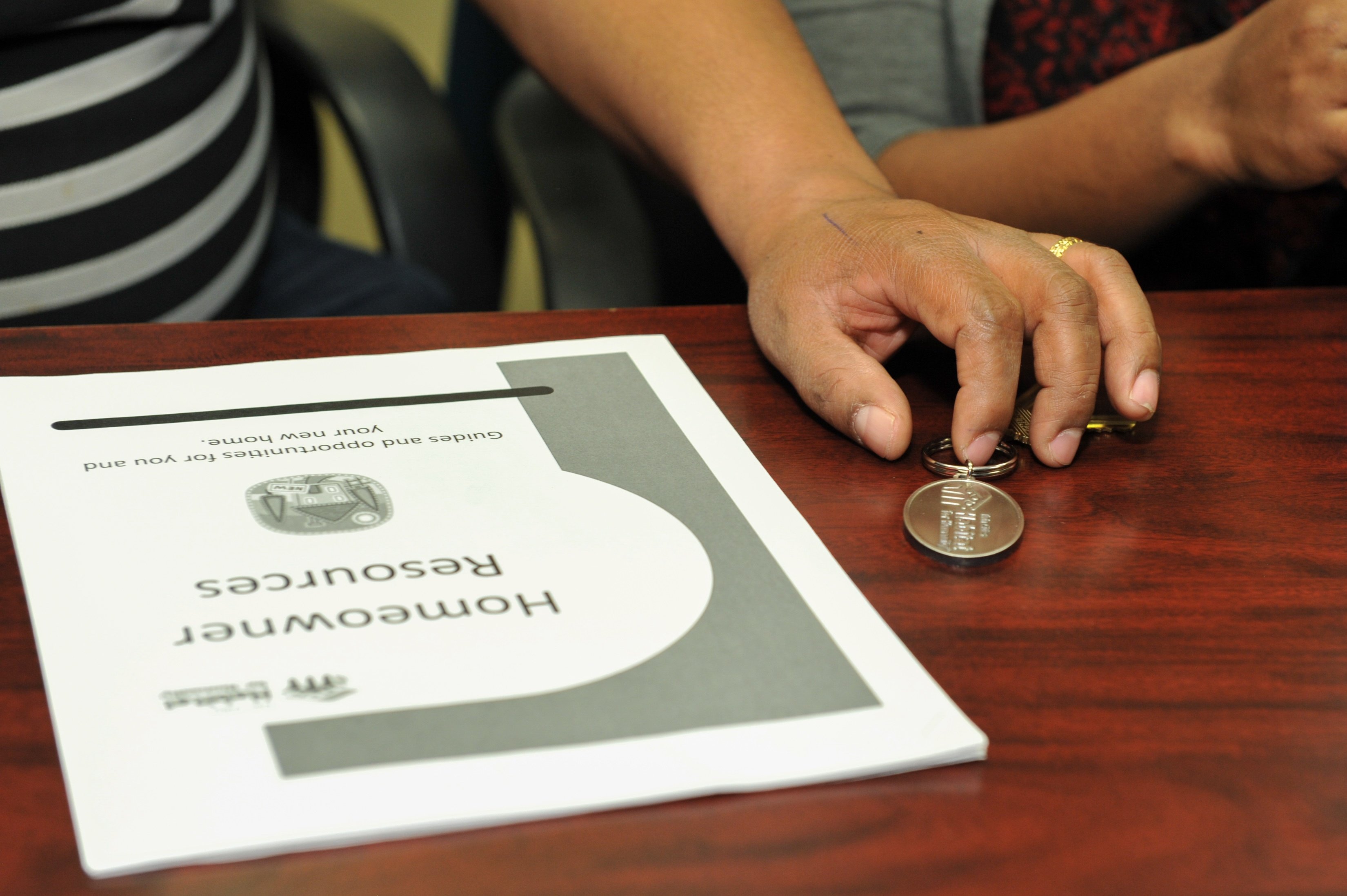How Do I Get A Pre-Approval From a Mortgage Lender to Buy a House?
Getting pre-approved for a home mortgage might be the most important thing you can do when looking for a new home. Pre-approval tells you how much...
3 min read
 Twin Cities Habitat for Humanity
:
1:13 PM on November 29, 2021
Twin Cities Habitat for Humanity
:
1:13 PM on November 29, 2021


If you want to buy a home, the very first thing a real estate agent is going to tell you to do is to get pre-approved for a mortgage. They’ll explain that no seller will consider your offer without a solid pre-approval. It makes sense—sellers want to know that you can actually pay for the house before they enter into a contract with you. But what you might not realize is that pre-approval is preliminary. And that means you can still have your mortgage loan denied before you seal the deal at closing.
Understanding the common reasons why these denials happen can help you be better prepared, and avoid the stress and disappointment of having your mortgage denied.
When you apply for a mortgage, your application goes through a process known as underwriting. The lender looks at your earnings, current bills, and credit history. They’re trying to decide how risky it will be to lend you money. Every time a loan is made, the lender plans for a certain amount of risk. The risk comes from the chance you might not be able to pay. If you get sick or lose your job, the lender loses money. By law, lenders process every application they get, but most only approve loans where the risk is very low.
Here are some reasons a mortgage loan may be denied in underwriting and what to do if you find yourself in that situation:
Your credit score is a number that reflects your history of paying your debts. It is not based on your income. It goes up and down based on how you use your credit. Making your loan payments on time is the biggest part of your credit score. Having credit but not using all of it helps, too. For example, having a credit card, but only utilizing a small percentage of the available balance will help your credit score.
Credit scores range from 300 to 850. Most lenders want a score at or above 620. Some special programs may allow a lower score. If your credit score is too low for a lender, you can always go to a different one (TruePath Mortgage will accept scores as low as 580 in special circumstances).
Make sure to shop around for your mortgage - a group of lenders pulling your credit at the same time isn’t going to affect your credit score in any significant way.
Lenders will ask you to prove how much money you make. They will usually want 30 days of pay stubs and two years of tax returns.
The goal is to prove you have a steady job and can pay back your loan. But it doesn’t end there. Lenders look at your “debt-to-income ratio” (sometimes abbreviated “DTI”). They want to be sure your income is more than what you pay in bills. That includes not just the proposed mortgage but also credit card debt, your car loan, and student loans if you have them. A typical debt-to-income ratio that lenders find acceptable is 43% or lower.
In addition to the money that you need for a down payment, the bank is going to want to see that you have enough money in the bank to pay the mortgage and closing costs. Typically they want you to have two months of payments (principal, interest, taxes, and insurance) in the bank and they’re going to ask for copies of your bank statements that show you have the funds that you say you do.
If you’ve had to declare bankruptcy in the past, you will typically need at least 24 months to rebuild your credit before you can qualify for a mortgage.
Anything that changes your debt-to-income ratio can threaten your loan until closing. If you lose your job or have to take on new debt before closing, like paying a medical bill, your loan can be denied. Try to avoid major life changes between your pre-approval and closing, like buying a car, quitting your job, or changing banks.
Other Factors
Other problems with your loan application might happen by accident. If you moved recently, it might be hard for a lender to confirm your identity. If you’re a recent immigrant, you might be asked to show proof of status. These problems can be solved by providing more information that shows your name and where you’ve lived. A lender will let you know if there’s anything you need to bring or send them. Your application will be paused until they have the information.
In addition to the income and credit factors mentioned above, the bank or mortgage lender is going to do a deep dive on the house that you’re buying. They want to know that the property itself is worth the amount of money you have agreed to pay for it, and they won’t approve a mortgage until they’re satisfied with the appraisal.
This is done by a licensed appraiser. They’re a third party that's independent of the transaction who evaluates the home based on its size, location, condition, and amenities to set a value. If they determine that the value is lower than what you’ve agreed to pay, the bank will only give you a mortgage based on the lower value.
The process of getting an appraisal happens after you’ve agreed to a price with the seller - so you can imagine it’s a tough conversation to have if the appraisal comes in at a lower value.
Your gift unlocks bright futures! Donate now to create, preserve, and promote affordable homeownership in the Twin Cities.

Getting pre-approved for a home mortgage might be the most important thing you can do when looking for a new home. Pre-approval tells you how much...

If you're beginning the journey of buying your first home, it is critical to have an understanding of employment requirements to be eligible for a...

Buying your first home is a complex process (here’s a guide that could help you). A big part of it is selecting the right mortgage. It’s a financial...